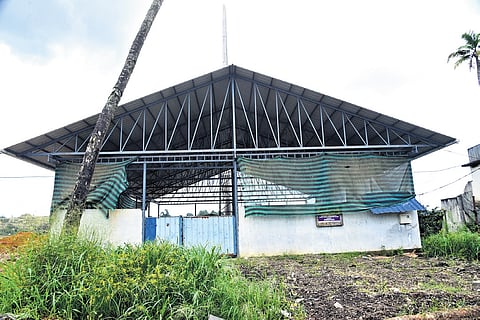

KOCHI: Finally, a solution is in sight for the alarming sanitary waste disposal issue that the city has been facing for a long time. Construction of a Rs 3.45-crore biomedical waste treatment plant, a first-of-its-kind initiative by a local body, at the Brahmapuram dumpyard is nearing completion and is set to start functioning from next month.
“This is the first time a local body is setting up a dedicated biomedical waste treatment plant. The three-tonne plant will facilitate the incineration and disposal of waste such as soiled sanitary napkins and adult diapers. Around 75% of its construction is over,” said a senior health official of the Kochi corporation, adding that the city generates biomedical waste to the tune of three tonnes daily.
At present, two government-approved agencies ‘Green Evotech’ and ‘Aravind Associates’ collect the biomedical waste, which is incinerated at the facility owned by Kerala Enviro Infrastructure Ltd (KEIL) at Ambalamedu. “The current system will remain in place,” he said.
“Once the new plant becomes operational, more sanitary waste can be disposed of, adequately meeting the increased quantity being generated. At present we’re incurring a disposal cost of Rs 30 per kg. Households are required to pay the agency collecting the waste Rs 12/kg. We intend to direct more of the sanitary waste to the new facility at Brahmapuram,” the official said.
All biomedical waste, except hospital-generated ones like syringes, falling under the hazardous category can be incinerated at the plant.
“Items contaminated with blood and bodily fluids, including sanitary pads, are hazardous biomedical waste. They also include soft materials like diapers used by babies, adults and bedridden patients as the same can cause diseases. As per the Bio-Medical Waste Management Rules (BMW), 2016, such items should be incinerated, autoclaved or microwaved to destroy pathogens,” the official said.
“Proper disposal of sanitary pads is a challenge for households. We hope the agencies will increase the frequency of waste collection from an area to every week. Currently, they collect the waste only twice or thrice a month,” said Raji Sunil, a Kochi resident.